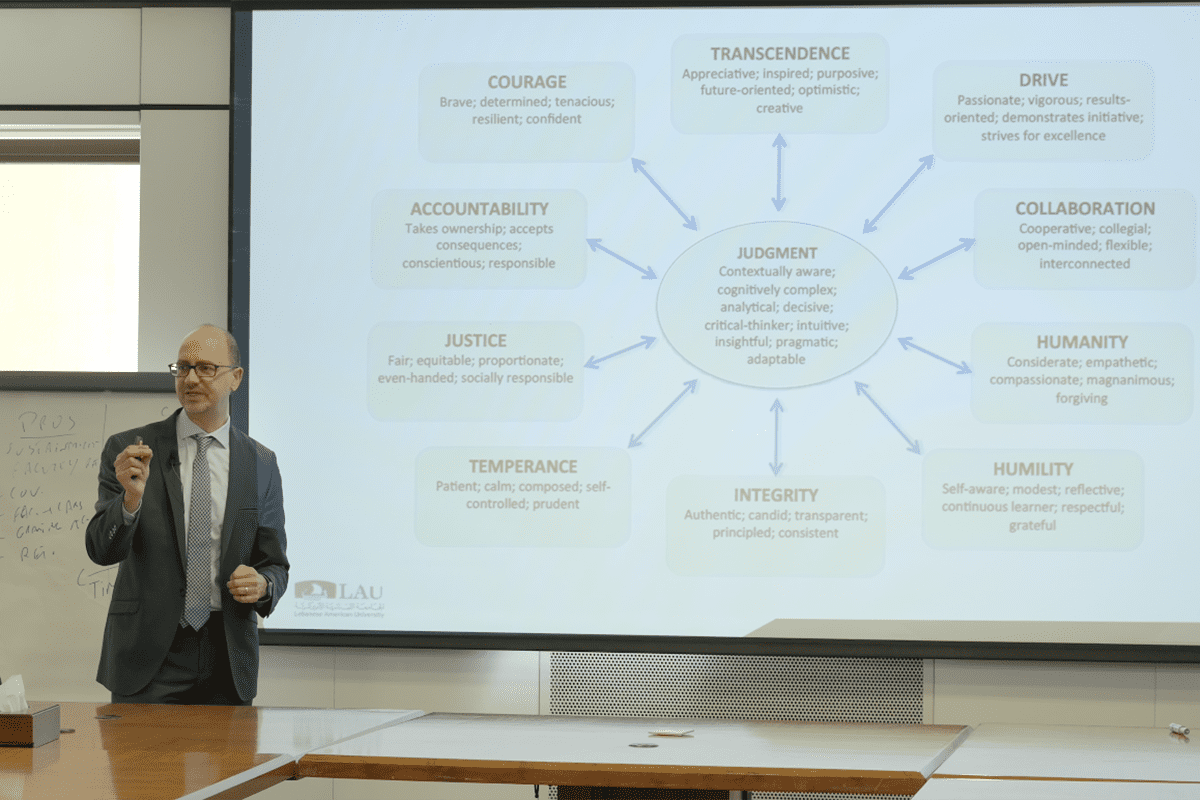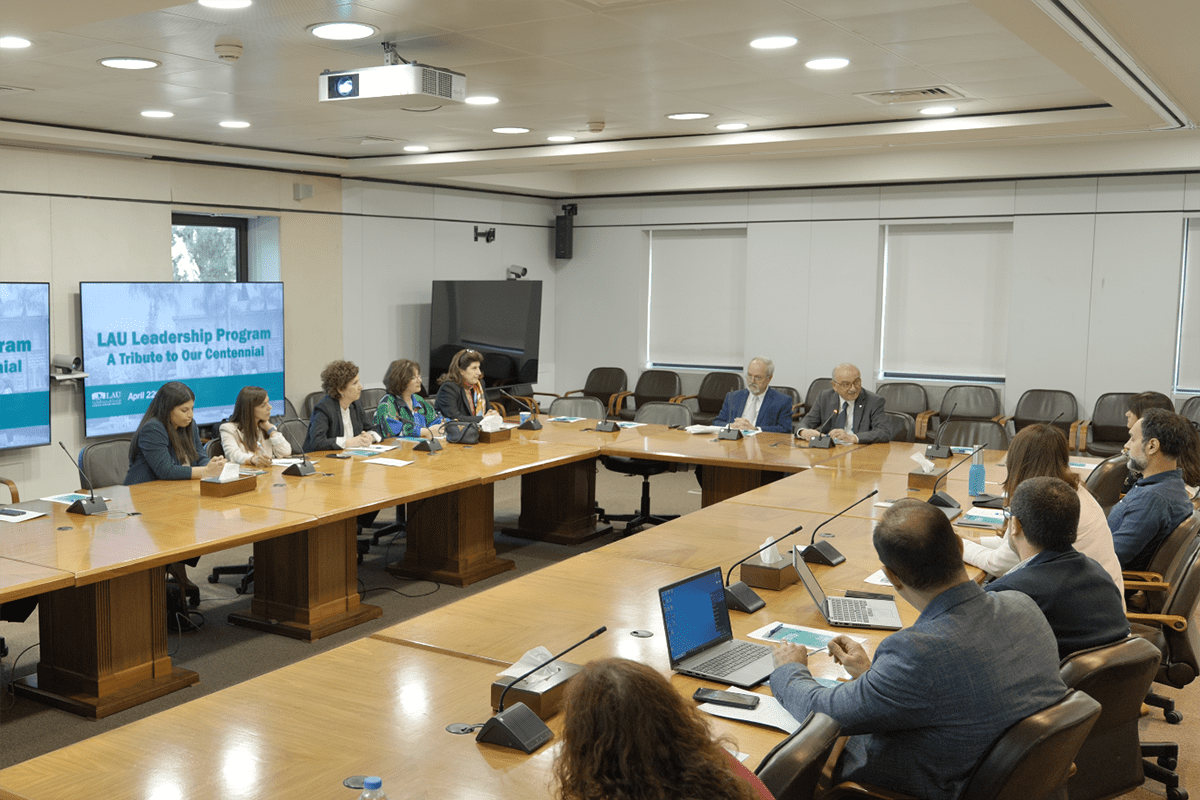The 2nd Leadership Training Session Sets the Tone for the Future of LAU
The two-day session provided perspective and equipped top university managers with the tools to adapt, upskill and reskill for the already apparent paradigm shift in higher education.
As part of a series of strategic initiatives stemming from the president’s vision for university sustainability, LAU hosted its second Leadership Program, a two-day training session on April 22 and 24, tailored for associate and assistant deans, chairpersons and senior non-academic managers. The program, which was launched last January, is meant to meet the learning and professional development requirements of LAU leaders as the university transitions into its second century.
“This is our token of appreciation to you as you have helped LAU navigate an existential, multifaceted crisis,” said LAU President Michel E. Mawad to the attendees in his opening remarks. “The next 100 years,” he added, “are going to be very different as challenges are multiplying in the face of our core mission to provide quality education and healthcare.”
To that extent, Senior Advisor to the President for Special Projects George K. Najjar underscored how “every institution, at a major turning point, would serve itself well by asking some of the tough questions, born out of the fact that success cannot automatically be assumed to perpetuate itself.”
That is why the session was carefully designed by Dr. Najjar and Associate Professor of Marketing at the Adnan Kassar School of Business Zahy Ramadan to encourage creativity, original thinking, fast-learning and consensus-building—all essential tools toward building capacity for a quick response fit for the digital age.

The session featured case studies of the university’s response to the economic crisis, to reflect on and draw lessons from a recent, pivotal moment in LAU’s history, which entailed brisk decision-making and action.
For Dr. Najjar, LAU is not short on capable talent, but these lessons will be crucial for the university to “fortify itself in terms of de-learning what is no longer useful and relearning what we will need in the future that we might not have needed in the past.” He spoke about a paradigm shift that will no doubt affect higher education.
In the age of Artificial Intelligence, and as universities increasingly lose their monopoly over the generation of knowledge, explained Dr. Najjar, the very structure of higher education will shift in favor of multidisciplinary research, teaching and delivery. As such, he added, “we will need leadership that can immediately grasp that the future is not a linear extension of the past but rather a different twist altogether.”
